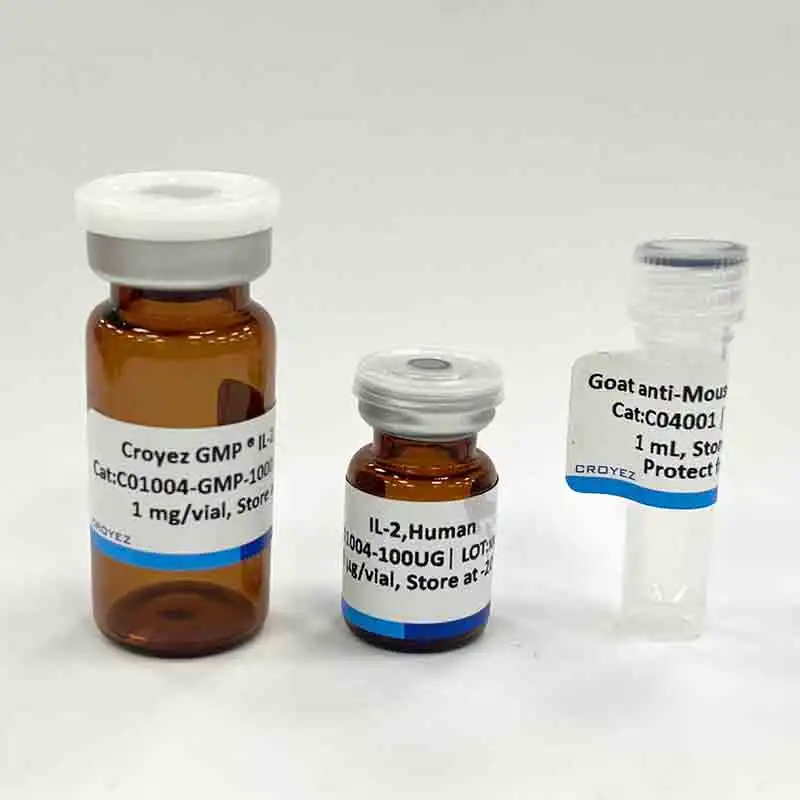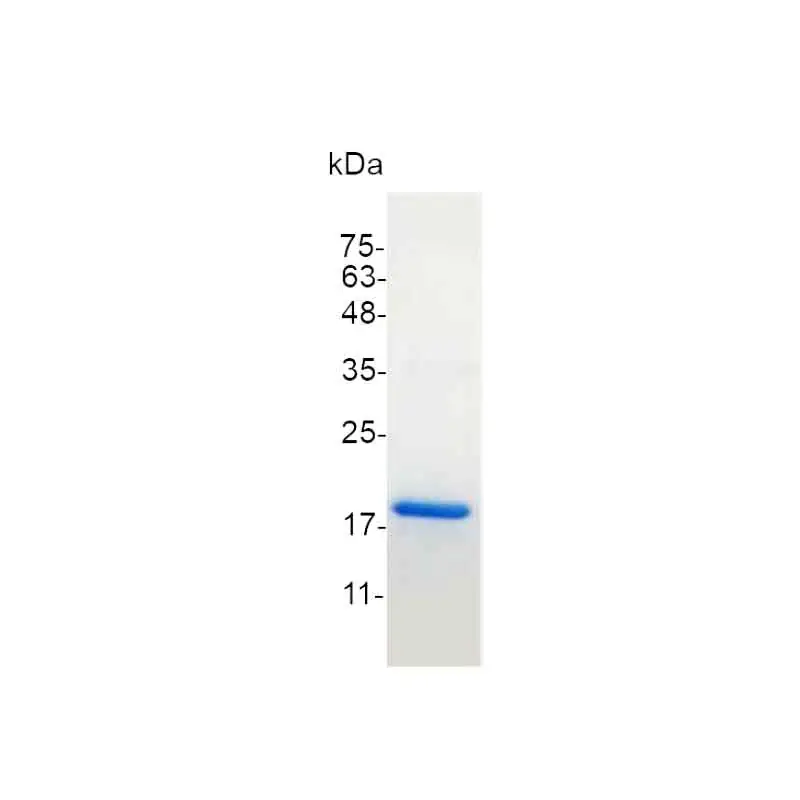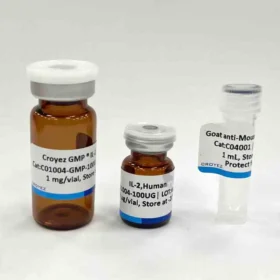LIF, a pleiotrophic factor, is identified in multiple cell types, including T cells, myelomonocytic lineages, fibroblasts, liver, heart and melanoma. LIF is capable of promoting long-term maintenance of embryonic stem cells by inhibiting spontaneous differentiation. In addition, LIF also have abilities including stimulation of differentiation of cholinergic nerves, the stimulation of acute phase protein synthesis by hepatocytes, and suppression of adipogenesis by supressing the lipoprotein lipase in adipocytes.
Sequence:
SPLPITPVNATCAIRHPCHNNLMNQIRSQLAQLNGSANALFILYYTAQGEPFPNNLDKLCGPNVTDFPPFHANGTEKAKLVELYRIVVYLGTS
LGNITRDQKILNPSALSLHSKLNATADILRGLLSNVLCRLCSKYHVGHVDVTYGPDTSGKDVFQKKKLGCQLLGKYKQIIAVLAQAF
with polyhistidine tag at the N-terminus
Source:
Escherichia coli
Endotoxin Test:
<0.1 EU per 1 μg of the protein by the LAL method.
Activity:
Measure by its ability to induce TF-1 cells proliferation. The ED50 for this effect is <0.2 ng/mL.
Purity:
>98% as determined by SDS-PAGE. Ni-NTA chromatography
Formulation:
The protein was lyophilized from a solution containing 1XPBS, pH 7.4.
Reconstitution:
It is recommended to reconstitute the lyophilized protein in sterile H2O to a concentration not less than 100 μg/mL and incubate the stock solution for at least 20 min to ensure sufficient re-dissolved.
Storage:
Lyophilized protein should be stored at -20°C. Upon reconstitution, protein aliquots should be stored at -20°C or -80°C.
Note:
Please use within one month after protein reconstitution.





